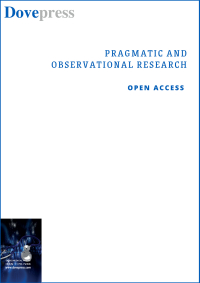在随机对照试验中测量与健康相关的生活质量:预期结果和报告结果不匹配
IF 2.7
Q2 MEDICINE, GENERAL & INTERNAL
引用次数: 0
摘要
目的健康相关生活质量(hrQoL)的评估可能需要重新考虑,因为疗效(在实验研究条件下的治疗效果)和有效性(在现实世界条件下的疗效)之间存在重要差异。我们推测,大多数研究人员在研究hrQoL作为终点时,都打算描述现实世界条件下的影响。不幸的是,大多数研究都是为了证实两种理论:一种是在实验研究条件下新干预措施的有效性,另一种是该干预措施在非实验性研究条件下对hrQoL的真实有效性。当结果本应描述真实世界条件下的效果,但评估产生了在实验条件下获得的结果时,就会出现冲突信息。本文以100项调查hrQoL的研究为样本,检验了疗效和有效性之间存在的冲突。方法我们分析了2015年4月至2016年8月期间PubMed上列出的免费临床研究出版物的样本,这些出版物评估了生活质量作为一种结果。我们评估了以下四个特征,这些特征在衡量疗效或有效性的研究中应该有所不同:1)是否将研究指定为随机对照试验,2)将研究设计描述为实用或不实用,3)将研究分类为疗效或有效研究,以及4)选择的纳入和排除标准的数量。结果91%的研究在实验条件下(在一项随机对照试验中)评估了hrQoL,但在现实世界条件下没有评估。60%的研究没有描述疗效和有效性之间的重要差异。只有6%的研究将该研究归类为语用试验。纳入标准和排除标准之间的差异在任何调查研究中都没有得到解决。结论四个标准的结果证实了我们的假设,即hrQoL研究主要是作为实验而非务实的试验进行的,表明疗效和有效性之间的重要差异的意义需要进一步讨论。语用试验,实验研究条件,现实世界条件,疗效,有效性,语用学。本文章由计算机程序翻译,如有差异,请以英文原文为准。
Measuring Health-Related Quality of Life in Randomised Controlled Trials: Expected and Reported Results Do Not Match
Purpose The assessment of health-related quality of life (hrQoL) may need to be reconsidered due to important differences between efficacy (the effect of a treatment under experimental study conditions) and effectiveness (the effect of a treatment under real-world conditions). We presume that most researchers intend to describe effects under real-world conditions when investigating hrQoL as an endpoint. Unfortunately, most studies are designed to confirm two theories: the efficacy of a new intervention under experimental study conditions and the real-world effectiveness of this intervention on hrQoL under non-experimental study conditions. Conflicting information emerges when the outcomes are supposed to describe effects under real-world conditions, but the assessment generates results obtained under experimental conditions. This paper examines the existing conflict between efficacy and effectiveness in a sample of 100 studies investigating hrQoL. Methods We analysed a sample of freely available publications of clinical studies listed in PubMed between April 2015 and August 2016 which assessed quality of life as an outcome. We assessed the following four characteristics that should differ in studies measuring either efficacy or effectiveness: 1) specification of the study as a randomised controlled trial or not, 2) description of the study design as pragmatic or not, 3) classification of the study as an efficacy or an effectiveness study and 4) number of selected inclusion and exclusion criteria. Results 91% of the studies assessed hrQoL under experimental conditions (in a randomised controlled trial), but not under real-world conditions. The important difference between efficacy and effectiveness was not described in 60% of the studies. Only 6% of studies classified the study as a pragmatic trial. The difference between inclusion and exclusion criteria was not addressed in any of the investigated studies. Conclusion The results of the four criteria confirmed our hypothesis that hrQoL studies are conducted mainly as experimental, but not pragmatic, trials indicating that the meaningfulness of the important difference between efficacy and effectiveness requires further discussion. Keywords pragmatic trial, experimental study conditions, real-world conditions, efficacy, effectiveness, pragmatic.
求助全文
通过发布文献求助,成功后即可免费获取论文全文。
去求助
来源期刊

Pragmatic and Observational Research
MEDICINE, GENERAL & INTERNAL-
自引率
0.00%
发文量
11
期刊介绍:
Pragmatic and Observational Research is an international, peer-reviewed, open-access journal that publishes data from studies designed to closely reflect medical interventions in real-world clinical practice, providing insights beyond classical randomized controlled trials (RCTs). While RCTs maximize internal validity for cause-and-effect relationships, they often represent only specific patient groups. This journal aims to complement such studies by providing data that better mirrors real-world patients and the usage of medicines, thus informing guidelines and enhancing the applicability of research findings across diverse patient populations encountered in everyday clinical practice.
 求助内容:
求助内容: 应助结果提醒方式:
应助结果提醒方式:


